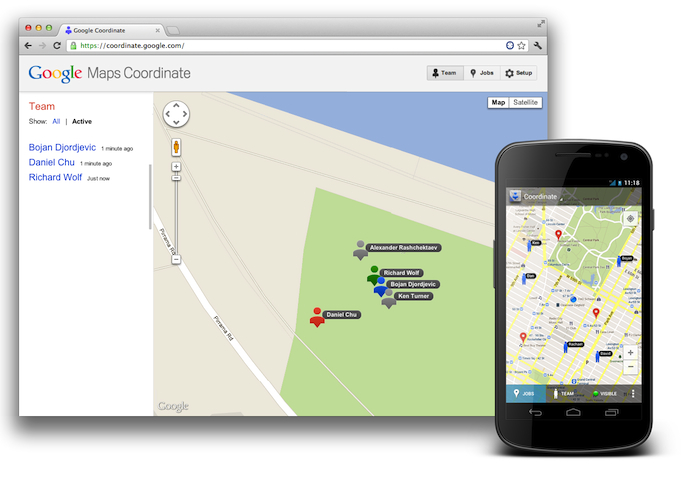As smartphones become ubuiquitious in business, more applications are appearing that take advantage of the devices’ inbuilt features like GPS and cameras.
To date, many of these have services have been in consumer based, social media style applications but as the market matures, more business orientated services are appearing.
Google Maps Coordinate, the latest service from the search engine giant, uses a smartphone’s built in location services to track field staff and allocate jobs through an Android smartphone app.
On top of that, Google have added a Maps-style interface for businesses to schedule appointments and for staff to accept assignments.
It’s a nice but basic product that doesn’t really address any gaps in the marketplace with job scheduling technology being available for over a decade in the logistics and field service industries.
Connect2Field’s chief executive Steve Orenstein compared Google Maps Coordinate to his own product and while Steve is talking up his own company, the comparison does show this is a market that’s well catered for.
Given the market already has plenty of participants, it would make sense for Google to make the API available to existing players and profit from the rich data they can provide, that move might even give the edge to Android devices in an enterprise market that will become a two horse race if Microsoft fail to execute on Windows 8 and their tablet devices.
Unfortunately Google has chosen not to include these services into their enterprise API packages, leaving them competing against existing players rather than working with them.
At the moment Google Maps isn’t on a roll, having dropped their developer rates by 88% to deal with threat from Apple’s new mapping service.
Probably the biggest drawback to Google Maps Coordinate is its lack of integration with Google Docs, the increased siloing of Google’s operations makes the company start to resemble Microsoft and this is an issue Sergei Brin and Larry Page are going to have address lest the company find itself locked into the same inward looking stagnation.
While its difficult to see Google Maps Coordinate surviving in its current form given the nature of the marketplace, the trend in business orientated geolocation services is changing how companies work.
As smartphones take over the market and location based services become accepted, we’ll see more tools taking advantage of the business opportunities. For Google, this sector has huge potential and it will be interesting to see how they succeed in capitalising on their market dominance.

Leave a Reply